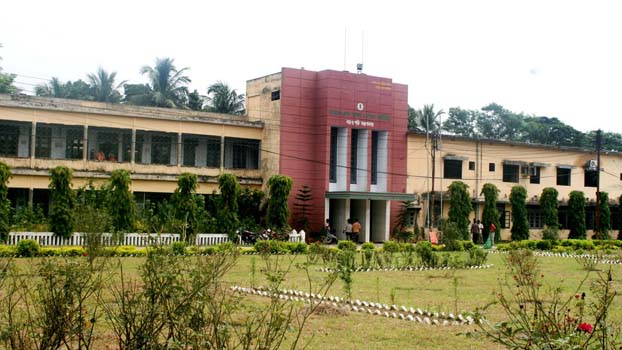Reshom Palli remained abandoned for years, attention needs develop the promising project

The concept of 'Reshom Palli' undertaken couples of years ago by Bangladesh Sericulture Board to boost silk production in the country remained uncared for the absence of proper monitoring, non- allocation of fund and bureaucratic red tapism.
It is learnt, silk industries or Sericulture is the process of producing natural silk through a highly technical job. The technology developed till today is the outcome of the research findings and keen observation for ages, even for centuries. From Bangladeshi context, sericulture extension is meant to bring new land under mulberry cultivation to cocoon production through silkworm rearing.
From 2009 to 2014, under the initiative of Bangladesh Sericulture Board, several 'Reshom Pallis (Silk villages) were established in various places of the country but due to lack of proper supervision, finance and patronisation, those ambitious projects remained abandoned for years.
Under the project more than 10,000 farmers’ families were supposed to bring under sericulture activities.
But due to different reasons particularly unscientific plantation system, plantation of low yielding variety, less sprouting due to non-viable cuttings (about to dry for transporting cuttings from Bholahat area to different parts of the country), less quantity of plant population and finally poor return due to low cocoon price in comparison to other traditional crops seriously discouraged the new farmers to radically abandon the sericulture practice by uprooting their mulberry cultivation.
But, the main objective of establishing the Reshom Palli was to make a particular Polly (village) into a complete sericulture unit having all segments of sericultural activities. From the view point, concept of Reshom Polly had arisen. Some Reshom Pollies were established in Ashrayan or Abasan areas.
According to Dr. Abdur Rashid, former Consultant of Bangladesh Sericulture Board, Reshom Polly had opened a new horizon in sericulture extension and development. As sericulture required some initial materials and investment for cocoon production, provision for support of input and fund was extended. The materials and financial support included free supply of 200 mulberry saplings, Tk.2400/= for sapling plantation and maintenance, Tk.5000/= for 5 katha( six decimal) of bush/low-cut mulberry cultivation, Tk.10,000/= for rearing-house construction and Tk.8,200/= for procurement of rearing appliances including disinfectant. Besides, support for imparting training and marketing of their produced cocoon was ensured.
So far 23 Reshom Pollies have been established throughout the country. Out of these 15 have been established within the Abasan/Ashrayan areas. Remaining seven pollies have been established in new villages maintaining strict selection criteria. It is learnt due to lcak of proper monitoring and sanction of fund to run the projects, activities of most of Reshom Palli are limited only in white and black. Howerver, the ambitious programme is limping for last couples of years.
Marketing Office sources of Rajshahi Sericulture Board said, after completion of these projects, Bangladesh will be able to produce 200 metric tonnes of silk yarn. 600,000 people now work in this sector and after completion of the projects, this sector will need more than 800,000 people.
BSB Extension Office sources informed, there are 1,170 Bighas of land in use for cultivating 400,000 Mulberry trees under Sericulture Board. Now farmers are cultivating mulberry trees in their unused lands. They have cultivated around 1,000,000 mulberry trees in their land around the country. Now, after receiving the specialist’s training, they are interested to cultivate mulberry trees in their tilling land. Sericulture Board is also encouraging the farmers for cultivating mulberry in their land.
Liakat Ali, President of National Association of Small and Cottage Industries, Bangladesh (NASCIB) said, the theme of Reshom Palli was undoubtedly praisworthy but he mentioned, it is very hard for the government to continue these projects and to expect any good output from such projects because in the past, all such project initiatives resulted in failure due to massive corruption.
Liakat Ali also said, if government sanctions loans to the silk farmers without interest for five years to build Silk Rearing Houses and Reeling Centres and if they could sell silk yarn at a reasonable price, they themselves would be able to produce 200 metric tonnes of silk yarn within next two years.
Sadar Ali, Managing Director of Sopura Silk Mills Limited said, the silk sector has been ignored for a long time. Now, government has started Reshom Palli project which has doubt to continue with success. He further said, initiative for developing the silk sector was praiseworthy but, if the government offers interest free loan to the farmers and if more research is conducted in this field, the silk industry will boom and play a vital role in the country’s economy.
He, however, expressed his suspicion over the success of the government sponsored projects because, he said, billions of taka have been misappropriated in the past in the name of BMRE(Balancing, Modernisation, Rehabilitation and Expansion) and development of the silk sectors.




